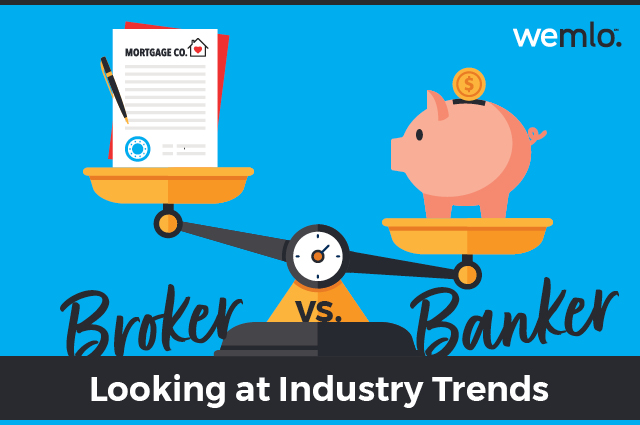New brokers should get to know these consummate professionals. If you’re new to the ranks of the nation’s 25,000+mortgage brokers, odds are you’re still familiarizing yourself...
The housing market is hot. Historically low mortgage rates, high demand, and low inventory means that experts predict things will likely stay this way for a while — all good news for those of us in the real estate/mortgage industry.
As Americans are taking out mortgage loans or refinancing, the data show that more and more consumers are moving away from traditional banks and looking to mortgage brokers for the nonbank options they can offer.
Broker vs. Banker: What’s the difference?
Historically, consumers seeking mortgage loans would look to find paths to home ownership. Local banks can develop the personal relationships that our industry thrives on that can be more difficult to achieve when you don’t have the opportunity to see customers on a regular basis. The downside is that because bankers are direct lenders, they only have access to loan products their company offers.
Mortgage brokers, on the other hand, likely have access to a wider range of products from nonbanks that aren’t subject to the same regulations as banks. This means brokers can often offer faster approvals, flexible rates, lower down payments, and require fewer financial criteria.
As technologies have advanced and credit scores have taken greater effect on which borrowers may or may not be approved, the broker versus banker trend has begun to slowly push its way to the broker side of the market. Additionally, potential homeowners have become more aware of their options and the amount of money brokers may be able to save them over the course of their loan.
Brokers and nonbanks have all of this to become a go-to option for customers looking for convenience, efficiency, and choice. In 2020, 68.1% of all mortgages originated came from nonbank mortgage lenders, which is up more than 10% from 2019 (nonbanks’ biggest yearly gain since 2014). It’s not just the housing boom of 2020 that has led to this, though — nonbank mortgage lenders have been gaining traction for the last decade. According to the research firm Inside Mortgage Finance, seven of the 10 largest U.S. mortgage lenders are nonbanks.
So when it comes to securing a mortgage loan, the banker versus broker debate is fairly simple in today’s lending climate:
-
If a borrower has a single source of income and great credit score, a banker might be a decent option.
-
But if a borrower has multiple sources of income, credit blemishes, or a debt-to-income ratio outside of a bank’s liking, a broker is the better option to adapt and adjust accordingly.
The future of the mortgage industry
Digital strategies continue to change the way we view consumer transactions and the lending industry is no different. Individuals are realizing they have a multitude of options at their disposal and are ready to explore whatever will benefit them the most. We see no signs of the advancements in technologies slowing down and are excited for what our industry has in store for both brokers and homebuyers.
Click here to learn more about how wemlo is using award-winning technology paired with highly qualified loan processors to help mortgage brokers and loan originators streamline the mortgage process and manage bigger pipelines.



